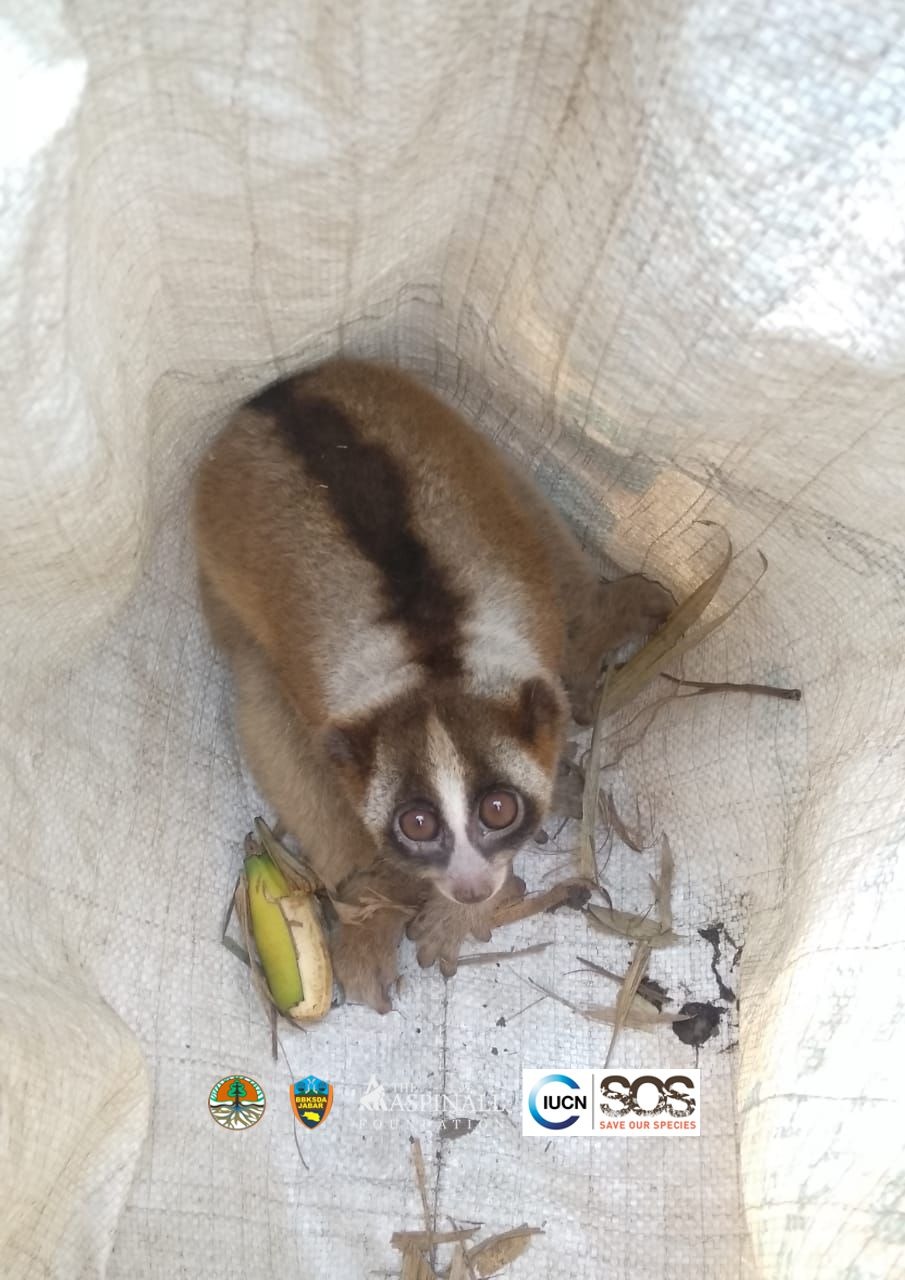There are two main aspects to our work in this region: rewilding primates from our partner parks and saving them on the ground, often from the horrific illegal pet trade.
We hear below from the dedicated team about three particular groups of primates that epitomise our work in Java.
Linseed and Diamond's Group
Linseed and Diamond are female Javan langurs that were part of a group of nine primates released in Java almost eight years ago after being rewilded from Howletts. Now they are in the Raden Soerjo Grand Forest Park and Coban Talun Protection Forest. This dynamic group are still often observed by our team, who check up on as many of the released primates as possible.
.jpg?width=3264&height=2176&name=Linseed%202%20(1).jpg)
This group are thriving and have been successfully breeding in the wild since their release. The Javan langur is classed as vulnerable, so this work is helping to add crucial numbers to the wild population.
Joko and Bagong's Group
As well as repatriating the primates from our partner parks in Kent, we also rescue animals from threats on the ground, primarily the appalling
illegal pet trade. Two groups that have come under our care in the
past two years are Joko and Bagong’s group. Joko was handed over from locals in Jember town, East Java, in August 2020; Nisa was translocated from central Java in December 2020, Ozawa from West Java in April 2021. Bagong (male), Yosinta and Yanti (females) entered our care in 2021, having been rescued in Java that same year. Since then, we have cared for them and prepared them for release in the wild.
Return to the Wild
Bagong’s group was released in March 2022 in Coban Talun. It took 5 hours of trekking through dense jungle to reach the release site, only accessible on foot. At the time of writing, Joko’s group are due to be released within weeks, into the same protected forest. Here, our dedicated team of rangers and experts will patrol the forest and monitor this group as they live wild and free.
.jpg?width=1280&height=960&name=IMG-20220327-WA0026education%20(1).jpg)
Welcome to the Rescue for a New Species
Earlier this year, our team were called on to rescue a slow loris from a
local village. This gentle, enigmatic species is Critically Endangered, and despite being protected by law, it is sadly still a victim of poaching and
the illegal pet trade. In May, one of our Indonesian team members was
informed that an animal was being kept by local people at Cisondari
village in West Java. The team immediately travelled to the location and found an adult male loris which appeared to be alert when approached.
As shy, nocturnal animals with specialised diets and complex needs,
lorises kept as pets are destined to live short, uncomfortable lives. The bright lights and activity of a human home are highly distressing and
severely compromise their welfare. Entrenched beliefs about their
supposedly supernatural powers, as well as their endearing appearance, have contributed to their popularity as pets and use in traditional medicine.

Without delay, the team saved the animal and brought him to our rescue centre for physical and medical screening. Fortunately, he was given the all-clear and was released that night.
The Vital Work Continues
Our incredible team in Indonesia are there to help threatened animals day and night. Be it saving them from the illegal pet trade, rewilding animals from our partner parks or undertaking hundreds of education sessions a year, they are making a huge difference to wild animals on the island.


